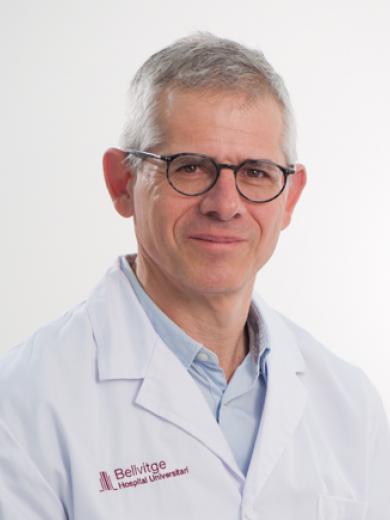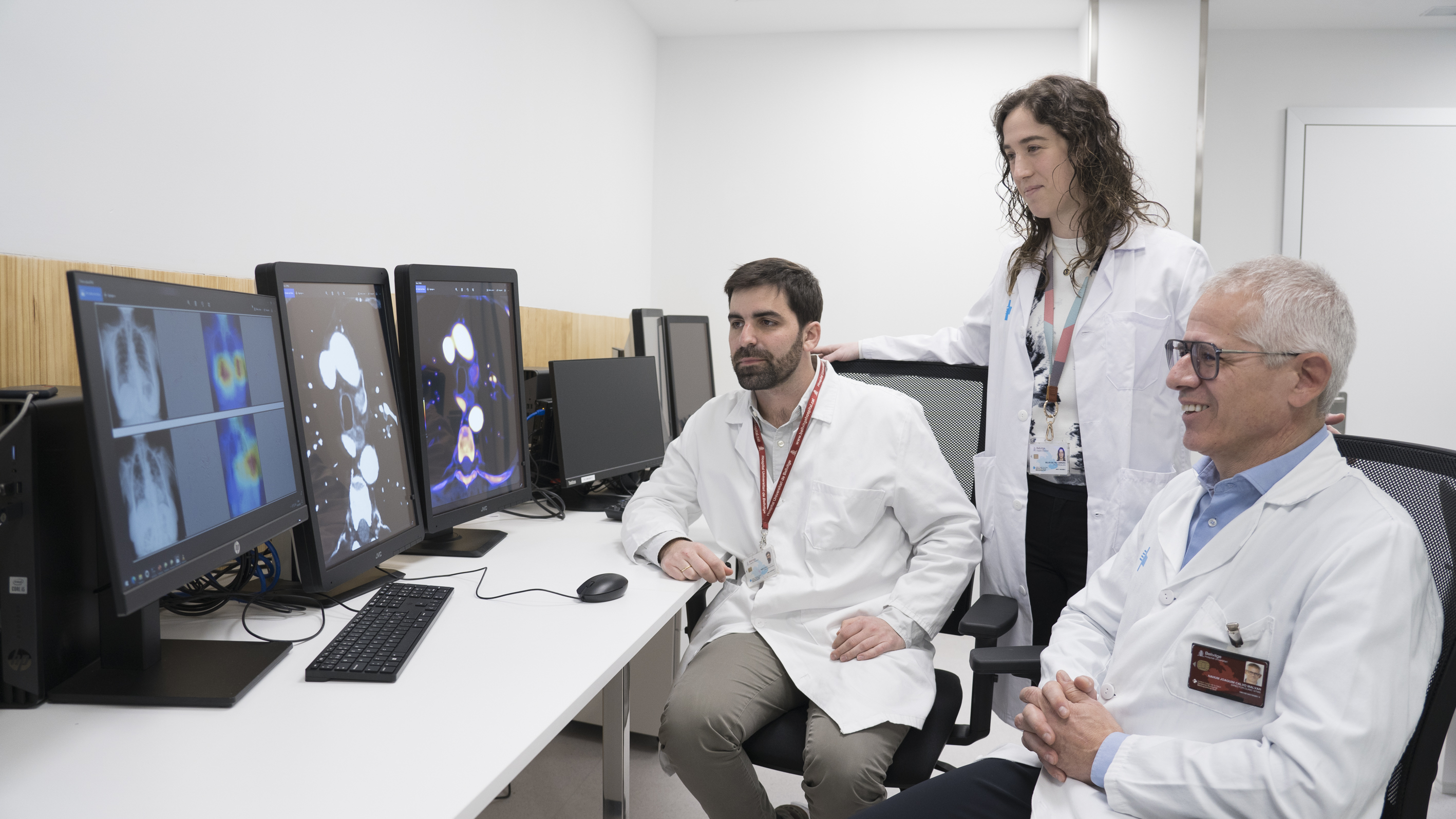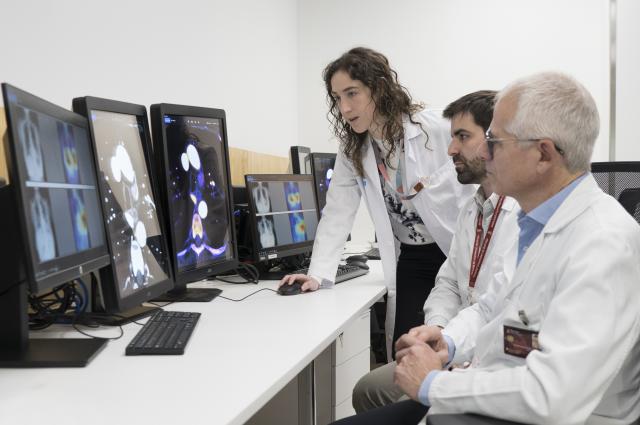Radiomics is a new paradigm in the field of Diagnostic Imaging. It moves from a subjective interpretation of images for diagnosis to a quantifiable one based on the analysis of data not perceptible to the human eye.
Bellvitge University Hospital has conceptualised a radiomics project that will enable the detection and use of imaging biomarkers for clinical practice in conjunction with other technologies - such as Artificial Intelligence or deep learning. The large amount of medical images generated in the Radiology and Nuclear Medicine services of hospitals has great potential to generate knowledge and add value.
Goals
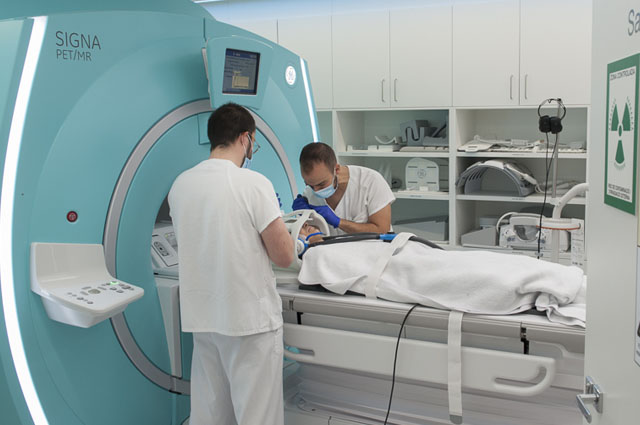
- To obtain objective, quantifiable data from diagnostic imaging tests in order to improve diagnostic accuracy and reduce human error.
- To streamline mechanical tasks that can prove to be "time-stealers" for clinicians through automation.
- Improve health outcomes and move towards personalised, precision and predictive medicine to give each patient the treatment they need when they need it.
Solution
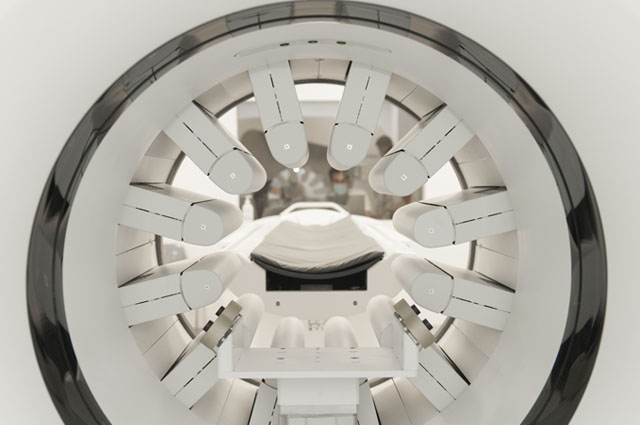
The HUB’s radiomics project began with 44 subprojects. These have been conveyed in clinical questions generated by the Radiology and Nuclear Medicine teams and medical experts in very specific pathologies. They have included tumour pathology of different organs and non-tumour pathology, such as pulmonary fibrosis, multiple sclerosis, rheumatoid arthritis and kidney transplant, among others. These specific pathologies were chosen because obtaining imaging biomarkers for them can provide relevant answers.
By means of bioinformatics analysis of the accumulation of data from patients treated over the years at the HUB, it will be possible to obtain these imaging biomarkers. With the application of algorithms and the use of artificial intelligence, it will be possible to predict the future evolution of several types of cancer and other diseases.
Proposta de valor
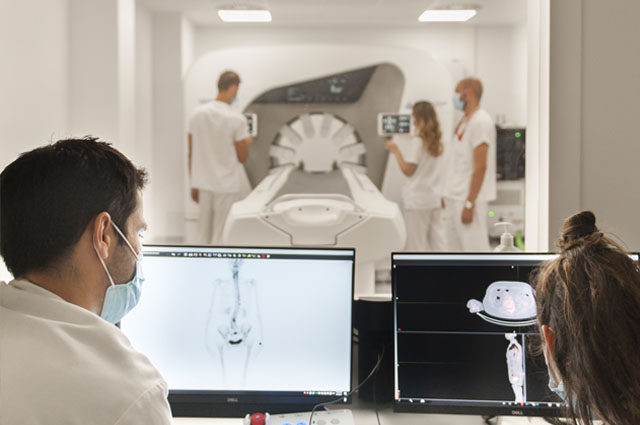
- Incorporation of a structured work methodology to obtain imaging biomarkers.
- Integration of biomarkers with clinical data and correlation with health outcomes.
- Creation of a platform for collaboration between professionals from the clinical world and professionals from the scientific and technological world.
- Generation of exportable knowledge for use by other hospitals.
The project in numbers
The technological platform
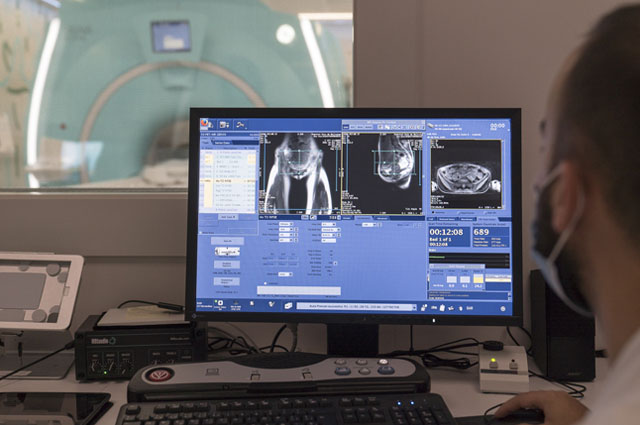
The project relies on cutting-edge technological tools such as Olea Sphere, Olea SDK, and Canon Medical's Automation Platform. These advanced tools empower our highly specialised team of professionals to enhance their capabilities with artificial intelligence and, in turn, to develop artificial intelligence solutions.
Informació complementària
Radiòmica: Innovació en el Diagnòstic i Tractament Mèdic
Radiòmica i Esclerosi Múltiple: La Visió del Dr. Martínez Yélamos
El Paper Transformador de la Radiòmica
Funding

This project has received funding from the Catalonia ERDF Operational Programme 2014-2020.
Project team
Cap de Servei
